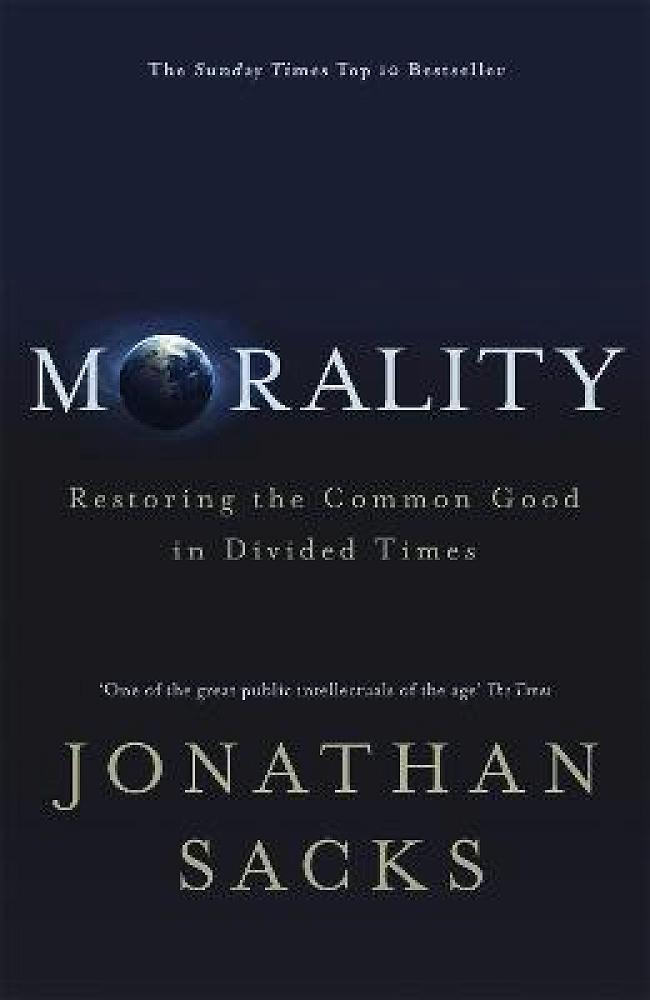
John Thornley reviews a masterpiece.
Rabbi Lord Jonathan Sacks passed away in November 2020. He served as Chief Rabbi of the United Hebrew Congregations from 1991 to 2013, and was a member of the House of Lords in the UK Parliament, where, in the Foreword by Justin Welby, Archbishop of Canterbury, “his sharpness of perception, economy with words and use of language leave a huge gap”.
I have long intended to read his 2002 book The Dignity of Difference, but this, his final book, sums up the total of 36 books written in the midst of a full life as ecumenical and interfaith religious leader, moral philosopher, public intellectual and global media commentator.
At the centre of his life was his family. In the Preface to this paperback reprint he dedicates the book to his grandchildren, while acknowledging Elaine, his wife, as the most important person in his life. He recalls their first meetings on the university campus: “I was earning graduate qualifications in self-doubt and existential angst. She was radiating joy. Hence my theory which is a summary of the book, namely – ‘It’s the people not like us, who make us grow’.”
The sources for his writing are found in the notes to the 23 chapters, at the end of the book, followed by a list of books relevant to each chapter. I would have appreciated an index but this is not given. Many of the ideas come from colleagues participating in national and international seminars and workshops. Sacks often contributed papers to such meetings. His genius lies in clearly setting out the key issues and ideas, summed up in the concluding lines of each chapter.
There are five parts with chapter headings to each:
1. The Solitary Self: Loneliness, Limits of Self-Help, Unsocial Media, Fragile Family.
2. Consequences/The Market and the State: From ‘We’ to ‘I’, Markets without Morals, Consuming Happiness, Democracy in Danger, Identity Politics, Time and Consequence.
3. Can We Still Remain Together? Post-Truth, Safe Space, Ways of Arguing, Victimhood, Return of Public Sharing, Death of Civility.
4. Being Human: Human Dignity, Meaning, Why Morality? Which Morality? Religion.
5. The Way Forward: Morality Matters, From ‘I’ to ‘We’.
Sacks addresses the coronavirus pandemic in the Preface: “This book was published in Britain just as the coronavirus was reaching these shores. Yet it spoke to the issues that arose then: the isolation many suffered; the selfless behaviour that allowed life to continue; the self-restraints we had to practise for the safety of others; the realisation that many of the heroes were amongst the lowest-paid; the challenge of political leadership in time of crisis and the importance of truth-telling as a condition of public trust. These are all moral issues and I explain in the newly written Epilogue how their significance suddenly became vivid.”
This is a potential study book for those looking for a challenging text for our century. Those with a more academic bent can help others through difficult passages. As the book draws on the writer’s life experience, including the everyday life of families, children and youth, there are gems of storytelling that would fit well within worship services.
Justin Welby describes this book as a ‘masterpiece’. I agree!
